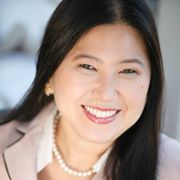Breast Reconstruction Specialist and Board-Certified Plastic Surgeon Dr. Constance Chen Offers Tips for Patients.
NEW YORK (PRWEB) April 13, 2020
Every year, hundreds of thousands of women undergo surgical procedures to reshape their abdomens. For many, diet and exercise cannot correct the loose skin, stretch marks, and loss of elasticity that result from pregnancy, weight loss, or the aging process. Some women also suffer a weakening of abdominal muscles that causes a bulge that is equally resistant to efforts to reduce it. An abdominoplasty or tummy tuck removes excess skin and stretch marks and can also repair damaged muscles. The result is a flatter, firmer stomach and improved waistline. One issue that women undergoing abdominoplasty often fail to consider, however, is that the abdominal tissue is often the best donor site for natural tissue breast reconstruction.
Nobody plans to get breast cancer. Yet one in eight women (12%) will develop breast cancer over the course of her lifetime, and only 2.5% of women with breast cancer have a family history. The overwhelming majority of women who have breast cancer have no family history of the disease and no known genetic mutation to account for it. “We give women all the available information we have on how to reduce their risk of breast cancer,” says plastic surgeon and breast specialist Dr. Constance M. Chen. “We recommend a healthy diet, regular exercise, avoiding smoking and hormone replacement therapy, and following their doctor’s guidelines for mammograms and breast exams. Despite this, breast cancer strikes women who never expect it.”
As more women undergo cosmetic surgery to improve the shape of their abdomens, they should realize that they are making decisions that will affect their ability to undergo natural tissue breast reconstruction if they develop breast cancer. Women may consider cosmetic abdominoplasties in their 30s and 40s. Meanwhile, they may develop breast cancer in their 50s and 60s. “When women come in seeking the best possible breast reconstruction, they often realize they want natural tissue breast reconstruction,” says Dr. Chen. “To keep this option open, they need to avoid cosmetic abdominoplasties.”
The “gold standard” in reconstruction surgery, known as “perforator flaps,” uses microsurgical techniques to carefully separate muscle from the fat and skin that are used to form the new breast, replacing the fat and skin that was lost to mastectomy, and preserving muscle at the donor site. The most common option for perforator flap surgery is to use the abdomen as the donor site, transferring fat, skin, and blood vessels and sometimes the nerves from the lower abdomen to the chest to build the new breast and restore sensation.
“Natural tissue (or autologous) breast reconstruction using the patient’s own tissue provides the best aesthetic and longest-lasting result,” says Dr. Chen, “whether performed at the time of mastectomy or later, often as the result of failed implants. And the most frequent donor site for reconstructed breasts is the abdomen. A woman who has undergone a tummy tuck cannot undergo natural tissue breast reconstruction using her abdominal donor site.” That said, when the abdomen is used for natural tissue breast reconstruction, the end result is a flatter stomach as in a cosmetic abdominoplasty. Furthermore, natural tissue breast reconstruction using an abdominal donor site is paid for by insurance.
“With foresight, women can preserve their options for breast reconstruction, should that ever become necessary,” Dr. Chen concludes. “We have made great strides in advancing the surgical techniques that make this possible and women must be aware of their options and work with their surgeons to determine the solution that works best for them.”
Constance M. Chen, MD, is a board-certified plastic surgeon with special expertise in the use of innovative natural techniques to optimize medical and cosmetic outcomes for women undergoing breast reconstruction. She is Clinical Assistant Professor of Surgery (Plastic Surgery) at Weill Cornell Medical College and Clinical Assistant Professor of Surgery (Plastic Surgery) at Tulane University School of Medicine. http://www.constancechenmd.com 212-792-6378

